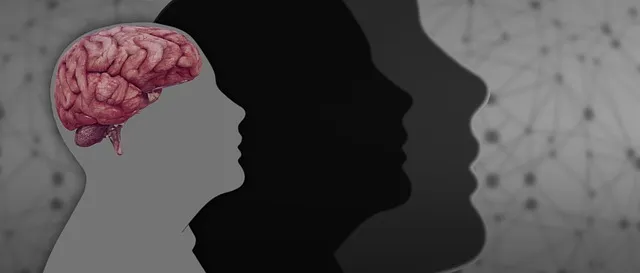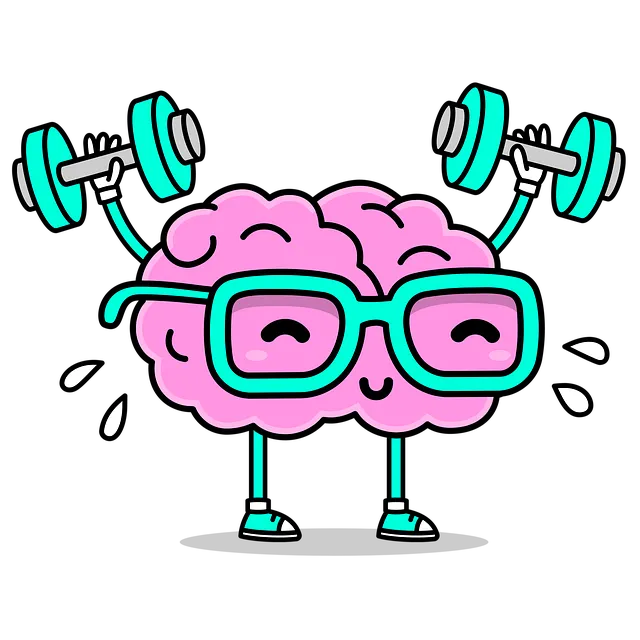Kaiser Permanente's training programs in Wheat Ridge are revolutionizing mental health care by addressing inaccurate diagnoses through specialized coaching, evidence-based practices like meditation, and comprehensive education. These initiatives enhance diagnosis accuracy, improve patient outcomes, and foster a supportive environment for both providers and patients, making Wheat Ridge a hub for effective mental wellness solutions.
Mental illness diagnosis accuracy is a critical aspect of patient care, with far-reaching consequences. This article explores efforts to enhance diagnosis precision, focusing on initiatives by industry leaders like Kaiser Permanente and the role of organizations like Wheat Ridge in mental health education. We delve into innovative techniques, successful measurement strategies, and future directions to ensure accurate diagnoses, ultimately improving patient outcomes. Discover how training programs and advanced approaches are revolutionizing mental health care.
- Understanding the Impact of Inaccurate Diagnoses
- Kaiser Permanente's Approach to Enhancing Training
- The Role of Wheat Ridge in Mental Health Education
- Innovative Techniques for Diagnosis Improvement
- Measuring Success and Future Directions
Understanding the Impact of Inaccurate Diagnoses

Inaccurate mental illness diagnoses can have profound and long-lasting effects on individuals’ lives. When a patient receives a misdiagnosis, they may undergo inappropriate or even harmful treatments that fail to address their actual condition. This not only delays access to effective care but also erodes trust in healthcare systems. Studies show that many patients face a myriad of challenges, including prolonged suffering, reduced quality of life, and increased risk of suicide, due to misdiagnosis. Kaiser Permanente training programs in Wheat Ridge have recognized this critical issue and are actively working on improving diagnosis accuracy through various initiatives.
These efforts focus on enhancing the skills and knowledge of healthcare professionals through specialized Mental Wellness Coaching Programs Development. By fostering a culture that prioritizes thorough assessment and continuous learning, these training programs aim to boost confidence in diagnosing mental health conditions accurately. The ultimate goal is to ensure that every patient receives personalized care tailored to their unique needs, thereby promoting positive mental wellness outcomes and enhancing the overall efficiency of the healthcare system.
Kaiser Permanente's Approach to Enhancing Training

Kaiser Permanente, a healthcare organisation based in Wheat Ridge, has been at the forefront of revolutionising mental health care through enhanced training programs. Their approach focuses on equipping healthcare professionals with advanced skills to improve diagnosis accuracy and patient outcomes. The training emphasizes evidence-based practices, including Self-Care Practices and Mindfulness Meditation, which are integral to fostering emotional healing processes.
By implementing these comprehensive programs, Kaiser Permanente aims to create a more supportive and effective environment for both providers and patients. Through interactive workshops, peer-led discussions, and access to the latest research, mental health professionals gain valuable insights and tools to navigate complex cases. This investment in training not only improves diagnosis accuracy but also contributes to better patient engagement and overall well-being.
The Role of Wheat Ridge in Mental Health Education

Wheat Ridge has emerged as a leader in mental health education and awareness, thanks to its association with Kaiser Permanente training programs. These initiatives focus on enhancing the understanding and skills of healthcare professionals through comprehensive training sessions. The Community Outreach Program Implementation at Wheat Ridge emphasizes early intervention and prevention strategies, empowering individuals to recognize signs of mental illness and connect them with appropriate support.
Through these programs, participants gain valuable Crisis Intervention Guidance and Empathy Building Strategies, fostering a more compassionate and effective care environment. By combining theoretical knowledge with practical skills, the training equips professionals to handle a wide range of mental health challenges, ultimately improving diagnosis accuracy and patient outcomes.
Innovative Techniques for Diagnosis Improvement

In an effort to enhance mental illness diagnosis accuracy, organizations like Kaiser Permanente have been at the forefront, pioneering innovative techniques in Wheat Ridge. Beyond traditional methods, they’ve incorporated comprehensive training programs that empower healthcare professionals with advanced skills. These programs focus on practical applications, ensuring practitioners are adept at recognizing subtle symptoms and integrating diverse assessment tools. By fostering a deeper understanding of mental health conditions, these initiatives aim to minimize misdiagnoses and improve patient outcomes.
One promising approach involves specialized workshops centered around stress management techniques. Additionally, Mental Health Education Programs Design tailored for primary care settings have emerged as game-changers. These programs not only equip doctors with the knowledge to identify complex cases but also provide practical guidance on implementing Mental Wellness Journaling Exercises. Such proactive measures allow healthcare providers to offer personalized treatment plans, addressing not just symptoms but also the underlying factors contributing to mental health challenges.
Measuring Success and Future Directions

Measuring Success and gauging progress is a critical aspect of any initiative aimed at improving mental illness diagnosis accuracy. Organizations like Kaiser Permanente have recognized this, implementing training programs in Wheat Ridge that focus on enhancing clinical skills and fostering a culture of collaboration among healthcare professionals. The effectiveness of these efforts can be evaluated through various metrics, including patient outcomes, provider feedback, and changes in referral patterns. By analyzing these data points, researchers and practitioners can identify what strategies are most impactful and make informed adjustments to continue refining diagnosis techniques.
Looking ahead, Future Directions involve expanding accessible resources for mental health education and support. This could include Public Awareness Campaigns that break down stigma, promote early intervention, and encourage open conversations about mental well-being. Additionally, programs focusing on Social Skills Training and Self-Esteem Improvement can empower individuals to better navigate their emotional journeys and seek appropriate help. Integrating these approaches into community outreach and healthcare systems has the potential to create a more inclusive and supportive environment for those facing mental health challenges.
Mental illness diagnosis accuracy is a critical aspect of patient care, and ongoing efforts by organizations like Kaiser Permanente and the work of facilities like Wheat Ridge are making significant strides. By implementing enhanced training programs and innovative techniques, these entities are revolutionizing mental health education. The focus on improving diagnosis accuracy not only benefits individual patients but also positively impacts public health outcomes in the long term. As we look to the future, continued research, collaboration, and measurement of success will be essential to ensuring that mental illness diagnoses remain precise and effective.






